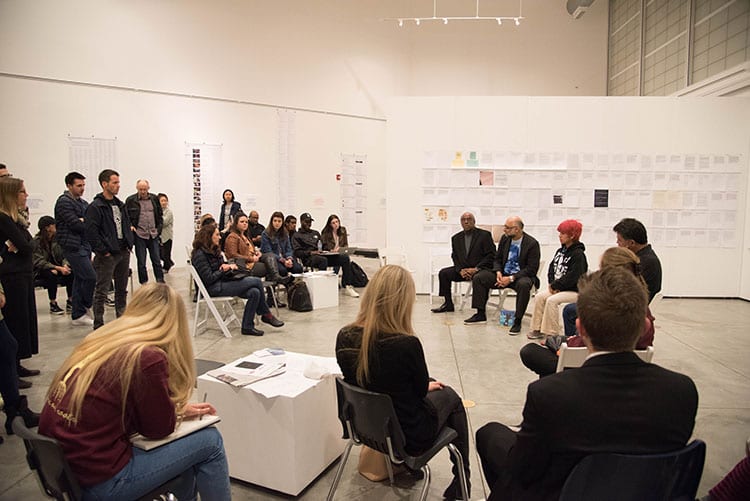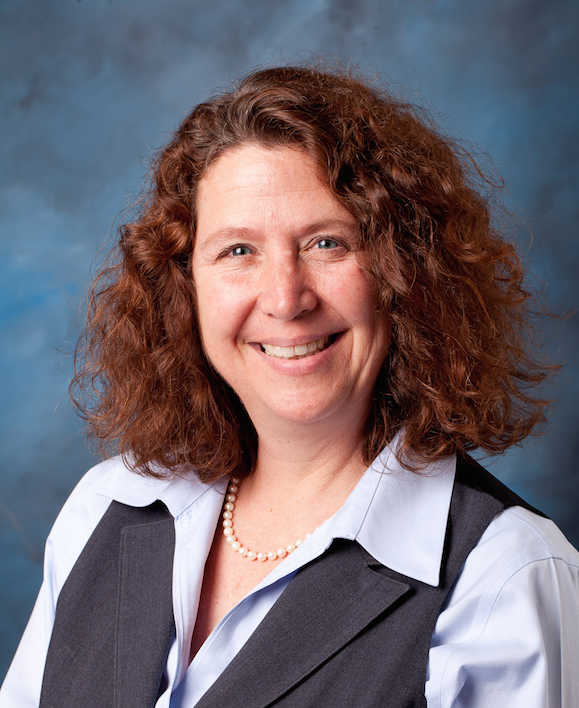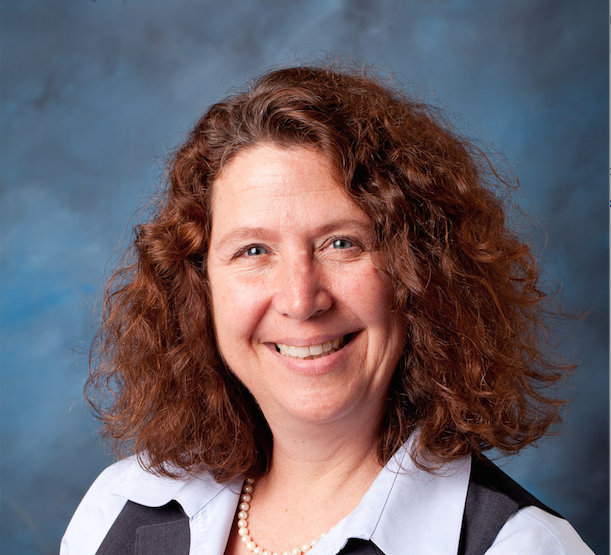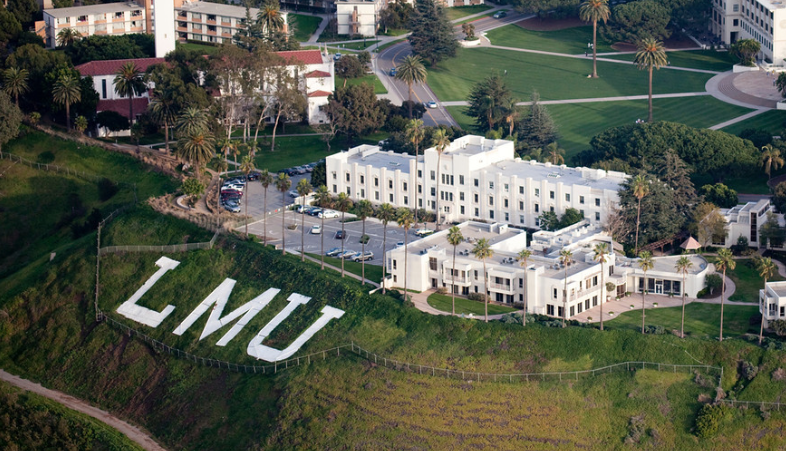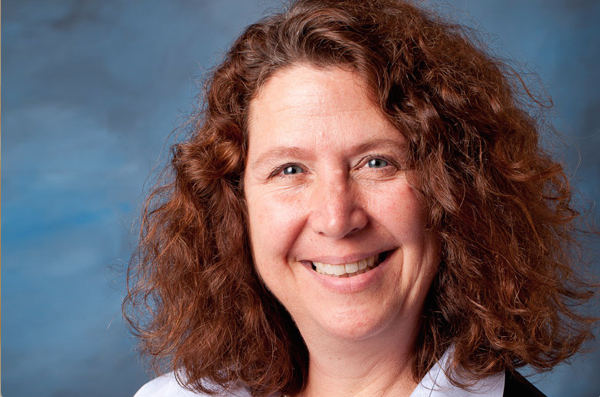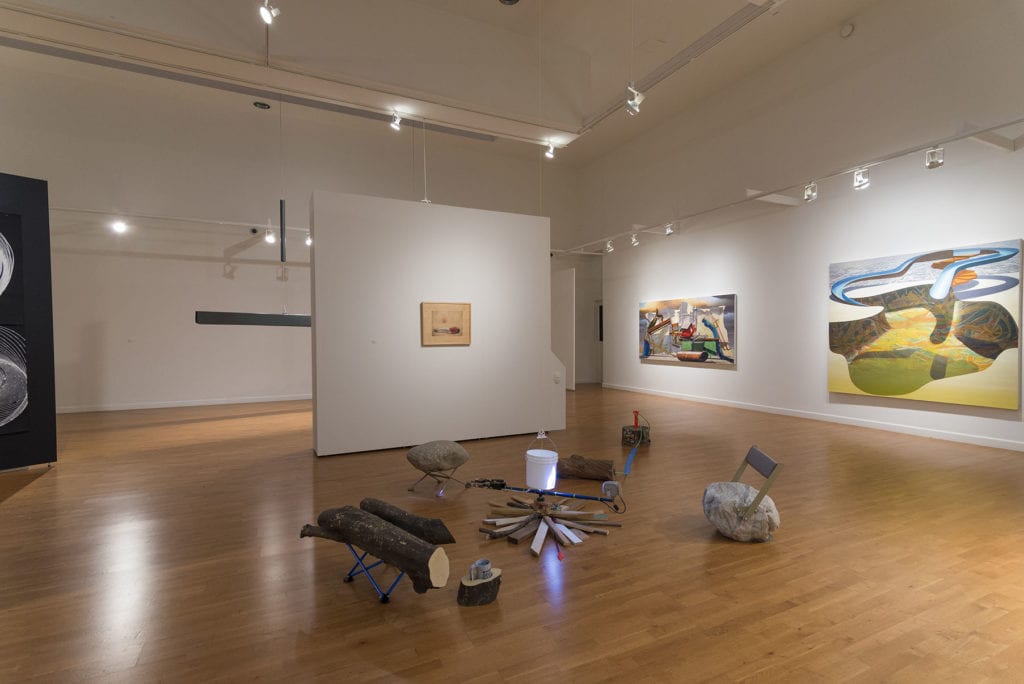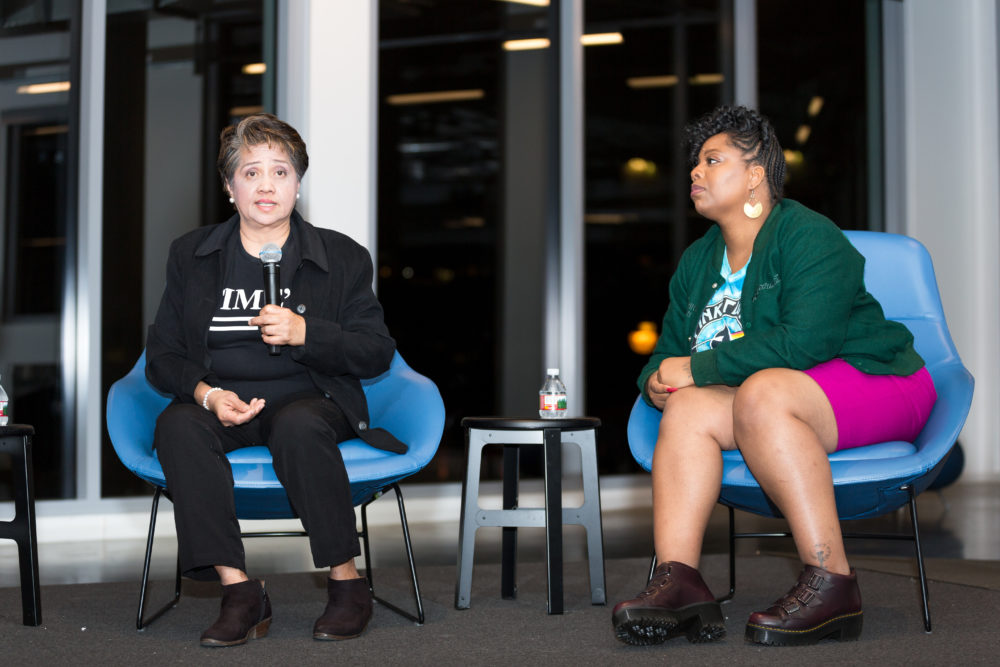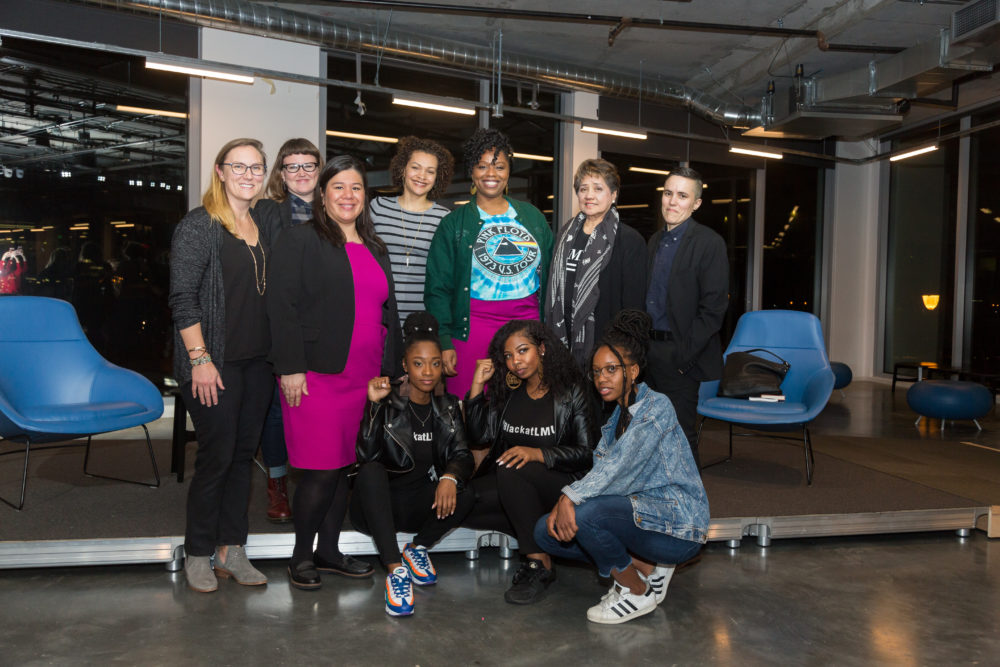
Students, faculty, and members of the LMU community gathered at LMU’s Playa Vista Campus on the evening of Feb. 28 for a discussion about the promises and pitfalls of employing social media as a tool for social change. The event was organized by LMU’s Department of Women’s and Gender Studies.
The evening’s panel was comprised of women who have been successful in using hashtag activism to promote social change. Sarah Jackson, associate professor of communication studies at Northeastern University and co-author of “#HashtagActivism: Networks of Race and Gender Justice,” guided the conversation as moderator. Panelists included Myrla Baldonado of the Caring Across Generations and the National Domestic Workers Alliance; Patrisse Cullors, a freedom fighter from LA and co-founder of Black Lives Matter and founder of Dignity and Power Now; and Mónica Ramírez, a civil rights attorney who is also the founder of several major initiatives and projects and is currently the deputy director for the Labor Council for Latin American Advancement (LCLAA).
BCLA’s Dean Robin Crabtree introduced the panel and encouraged the audience to seek social justice one tweet at a time, reimagine historical struggles with each generation, and harness the power of social media for social good. Following Dean Crabtree’s opening remarks, representatives from #blackatLMU offered their perspectives on being black students at LMU. They mentioned that in order for movements to be successful, they have to be action based and educational. They stated that no one is free until everyone is free and left the audience to ponder the question, “What truth are you willing to open up?”
Gearing their dialogue toward an audience of young adults interested in political and social activism, the panelists introduced themselves and provided personal insight into how and why they became involved in their respective causes. As the conversation progressed, they opened up about their real-life experiences with social movements, such as Time’s Up and Black Lives Matter. They then dove into the ins and outs of using social platforms as a channel for social movements.
Patrisse Cullors, co-founder of Black Lives Matters, shared, “In the last eight years, social media has been able to amplify the voices of the most marginalized. Before we could not get on CNN and we could not get on local news channels. But now, social media has become a bull horn for us, and that has been exciting to utilize.” Cullors also emphasized that all the work isn’t just done online. “We see the work of 15 years of organizing. A hashtag only becomes viral because a group of people organized around it. It’s not social media that makes it go viral. It’s real human beings spending the time organizing it all that makes it go viral.”
Armchair activism, a term describing a kind of activism where people only support causes solely online, was another topic the panelists touched on. An audience member prompted the discussion with the question, “Is this enough? Is sharing a tweet real activism?”
Mónica Ramírez shared, “I think we need to be kind to one another. Especially if people are engaging in any way. There are a lot of people who can’t march or go to rallies. If what someone can do is share an article, then that is just as important as someone showing up. Don’t be critical in a way that isn’t kind and that’s not inclusive.”
The engaging panelists were peppered with questions from the audience. One student inquired as to how the panelists take care of themselves while entrenched in the emotionally and physically draining work of activism. The women described their self-care strategies; from hanging out with friends and family to doing therapy and meditation. Another student asked how the activists support themselves financially, and another about the role of celebrities in supporting causes, and finally how we can work together to combat negative representation of black women.
The event concluded with closing remarks and many thanks. Immediately following the panel discussion, there was a meet and greet opportunity, as well as a book signing.
The event would not have been possible without the sponsorship of Bellarmine College of Liberal Arts Dean’s Office, Student Affairs Dean’s Office, Department of Women’s and Gender Studies, History Department, Thomas and Dorothy Leavey Center for the Study of Los Angeles, Marymount Institute for Faith, Culture, and the Arts, Department of African American Studies, Department of Chicana/o and Latina/o Studies, and Academy of Catholic Thought and Imagination.



